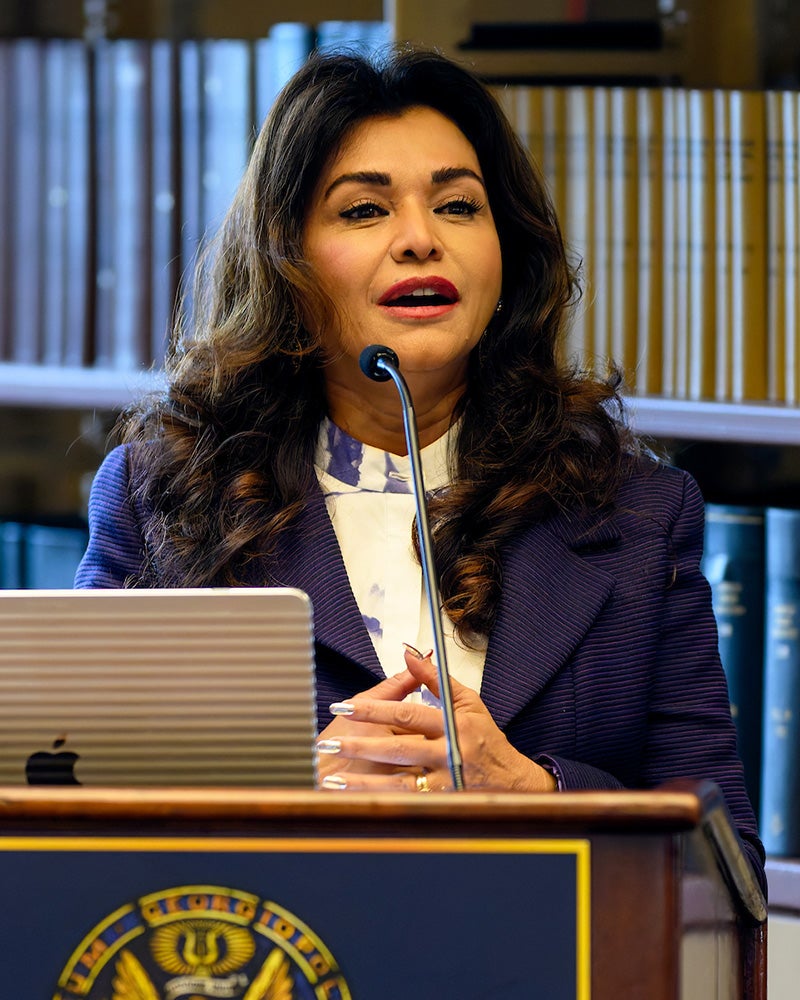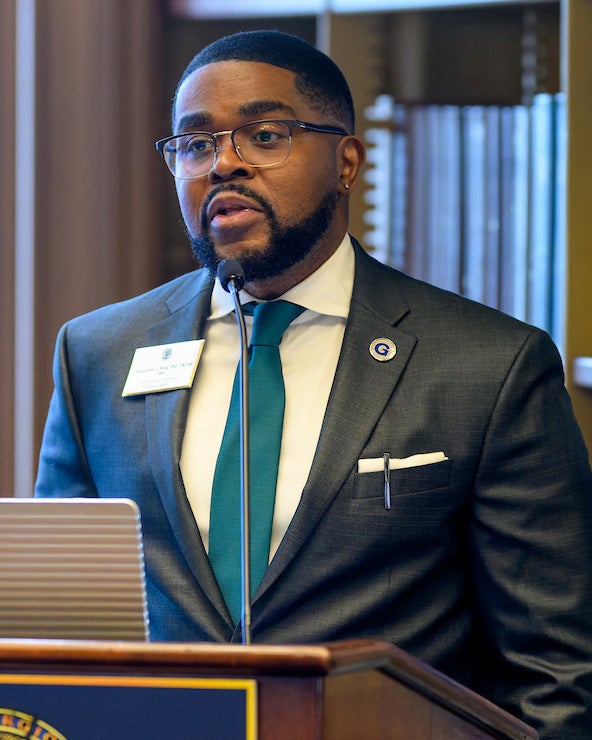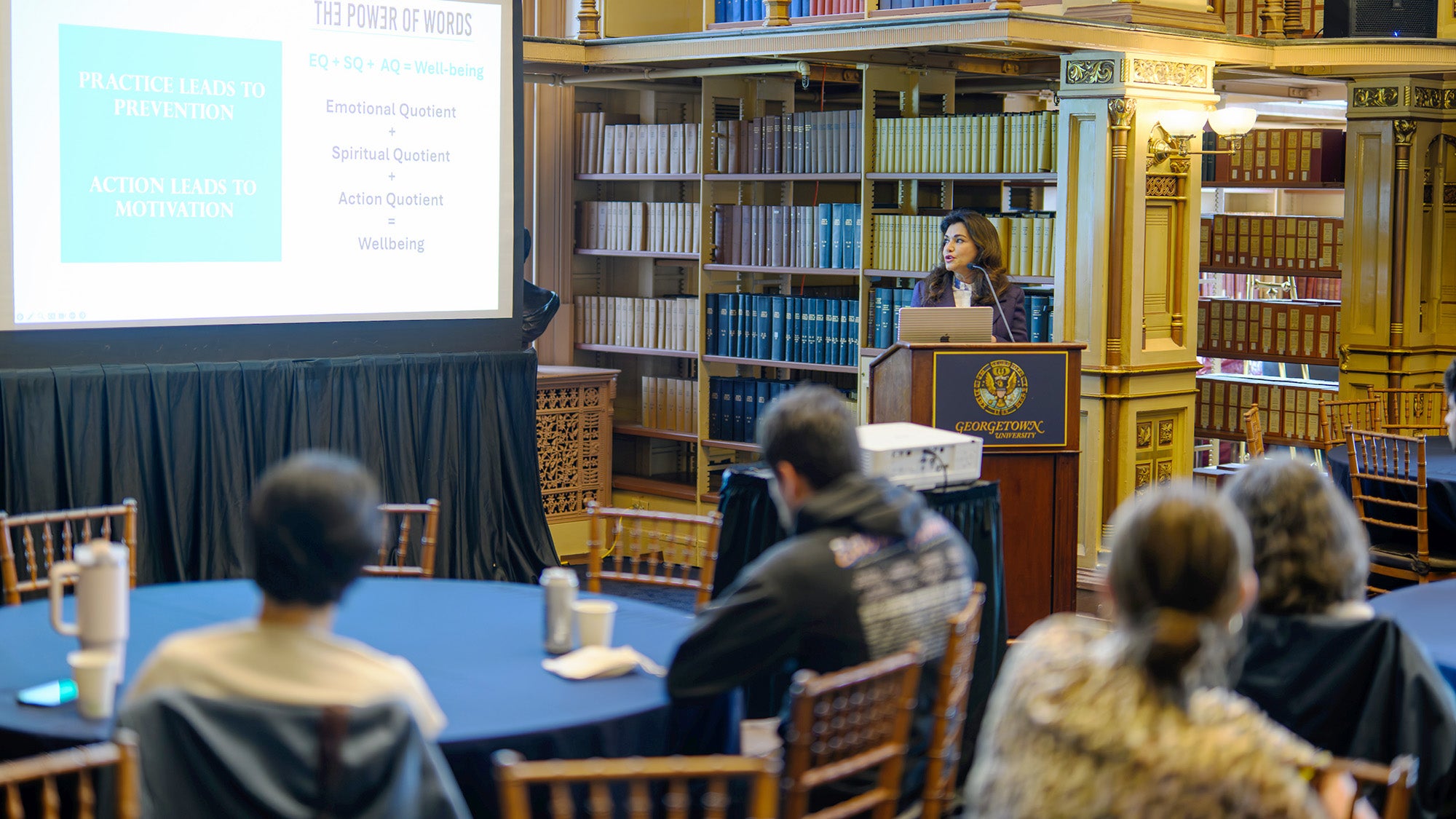School of Health Event Focuses on Emotional Intelligence
(October 29, 2025) — Seeing young people struggle with their mental health during the COVID-19 pandemic prompted Deborah Sawaf, a fashion designer and philanthropist, to shift her focus to advancing emotional intelligence, a pivot she spoke about during a recent School of Health event.

Deborah Sawaf
“Students were falling apart, going into depression, and the only way we could actually keep them afloat is by believing that there was hope, and that is what emotional intelligence is — staying positive and making sure that we give the future generations hope and a way to communicate,” Sawaf said at the October 8 event in Riggs Library.
Recognizing the critical need to change the conversation around mental health, Sawaf founded The Power of Words Foundation. “In today’s climate, emotional intelligence is actually a life skill that every human being needs to bring to the forefront of their day,” she said. “The Power of Words [Foundation] came to be because it was the only way I could reach out to the world to say, ‘We need to make a change.’”
During the event, Sawaf led faculty and staff at the School of Health through an interactive session exploring emotional intelligence as a tool for global well-being, leadership and human connection. She also introduced ideas for integrating emotional literacy, communication tools and compassion into daily life.

Christopher King, PhD, FACHE
Promoting emotional intelligence aligns with the School of Health’s mission to “advance the health and well-being of people locally, nationally and globally through interdisciplinary education, innovative research, and transformative engagement with communities,” said Christopher King, PhD, FACHE, School of Health dean.
“Emotional intelligence, which is frequently characterized as a soft skill, is one of the most overlooked aspects of the work that we are called to do in higher education and in leadership development,” King said.
“Being in tune to our emotions, as well as others, and adjusting those interactions accordingly, not only fosters more productive exchanges, but it takes us one step closer to being of better service to the world, one step closer to a purpose-driven life,” King added.
Kat Zambon
GUMC Communications

